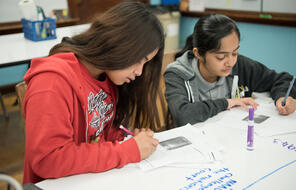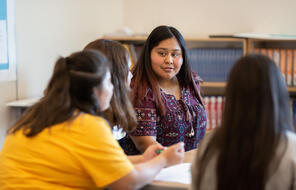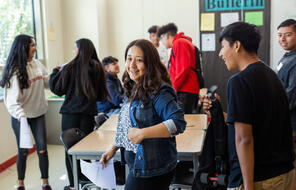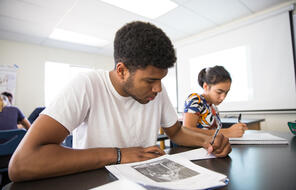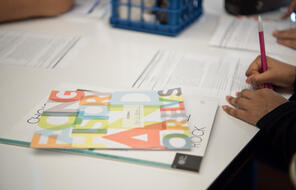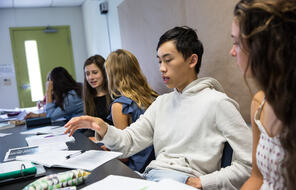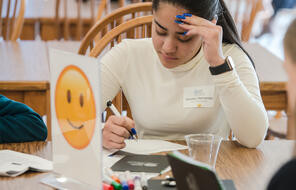"I Lost My Talk"
What is the difference between learning another language the way most people do, voluntarily, and being forced to speak the language of others? How can that affect one’s identity? What are the effects of losing one’s language?
After her mother’s death, Rita Joe, a Mi’kmaw poet and songwriter, spent her childhood in numerous foster homes before attending the Shubenacadie Residential School in Nova Scotia. During her time there, she was forcibly required to give up her language. She expresses her experience in the following poem.
I Lost My Talk
I lost my talk
The talk you took away.
When I was a little girl
At Shubenacadie school.
You snatched it away:
I speak like you
I think like you
I create like you
The scrambled ballad, about my world.
Two ways I talk
Both ways I say,
Your way is more powerful.
So gently I offer my hand and ask,
Let me find my talk
So I can teach you about me.
Connection Questions
- What images does the poem use to convey a story? How would you describe the emotions behind the words? How is the experience of losing a language described? What does the poet try to convey in her description?
- In the poem, Rita Joe connects speaking, thinking, and creating. What is she suggesting about the relationship between language and power?
- In this poem, Rita Joe says “Two ways I talk.” She is referring to her Indigenous language, Mi’kmaq, an Eastern Algonquian language, and to English. She has lost one of her “talks.” What conflict seems to exist between the “talks”?
- What is the poet suggesting about the relationship between language and identity?
- The poem ends with the words: “Your way is more powerful. / So gently I offer my hand and ask, / Let me find my talk / So I can teach you about me.” Why is it important for the poet to be able to teach “you” about herself?
- 1Rita Joe, “I Lost My Talk,” Canadian Women’s Studies 2–3, vol. 10 (1989), 89. Reproduced by permission of Ann Joe.
How to Cite This Reading
Facing History & Ourselves, "I Lost My Talk," last updated September 20, 2019.



